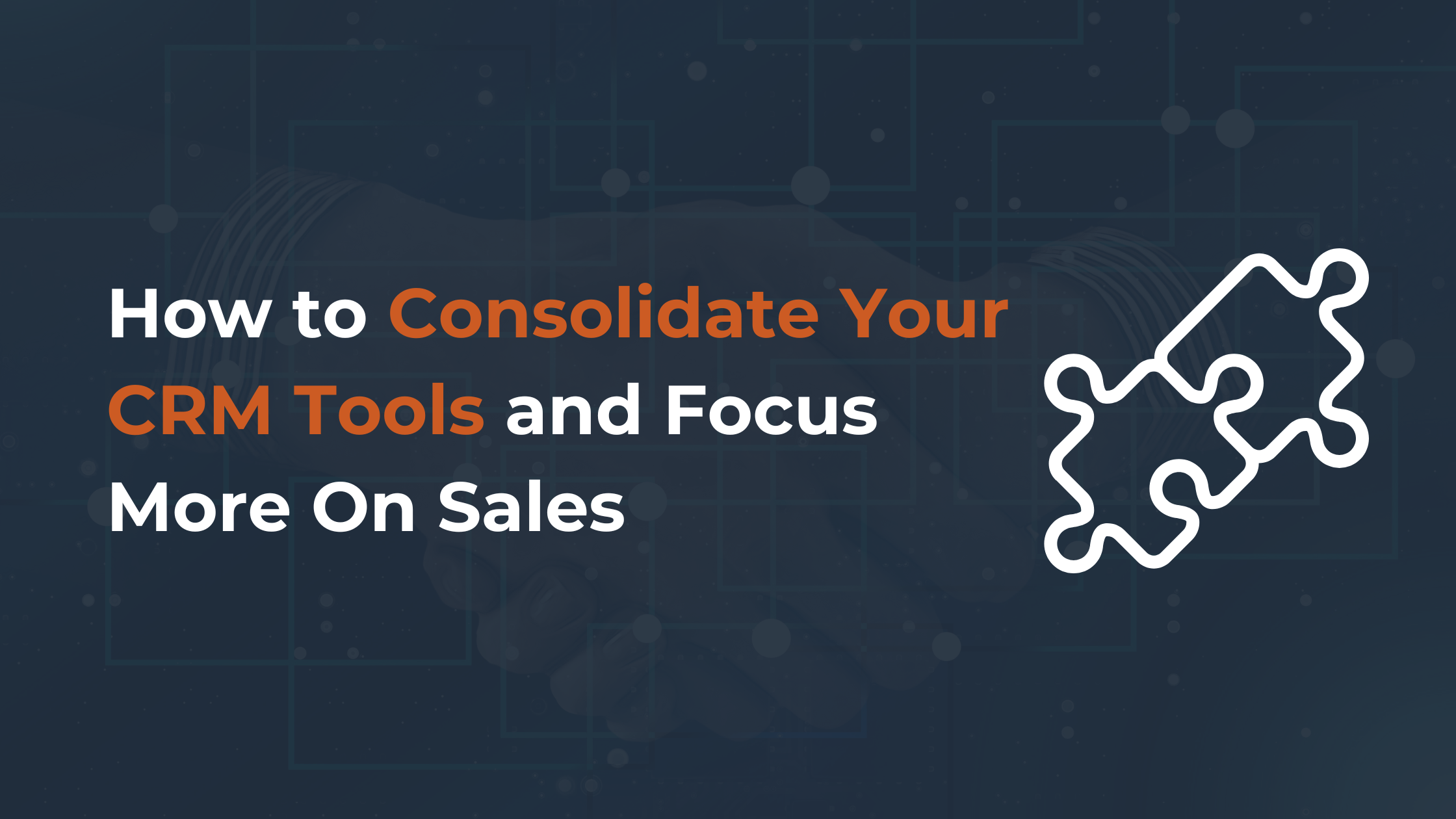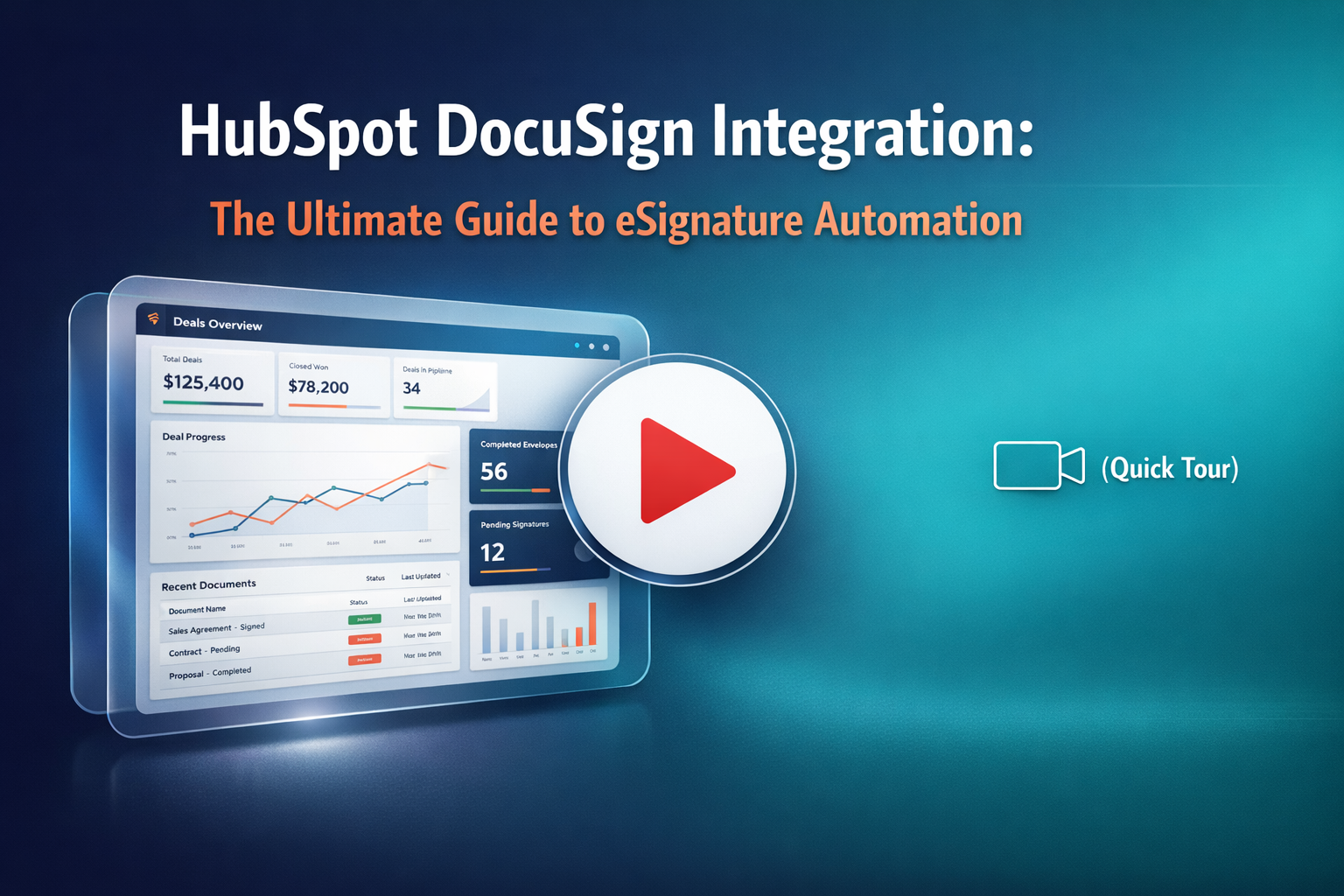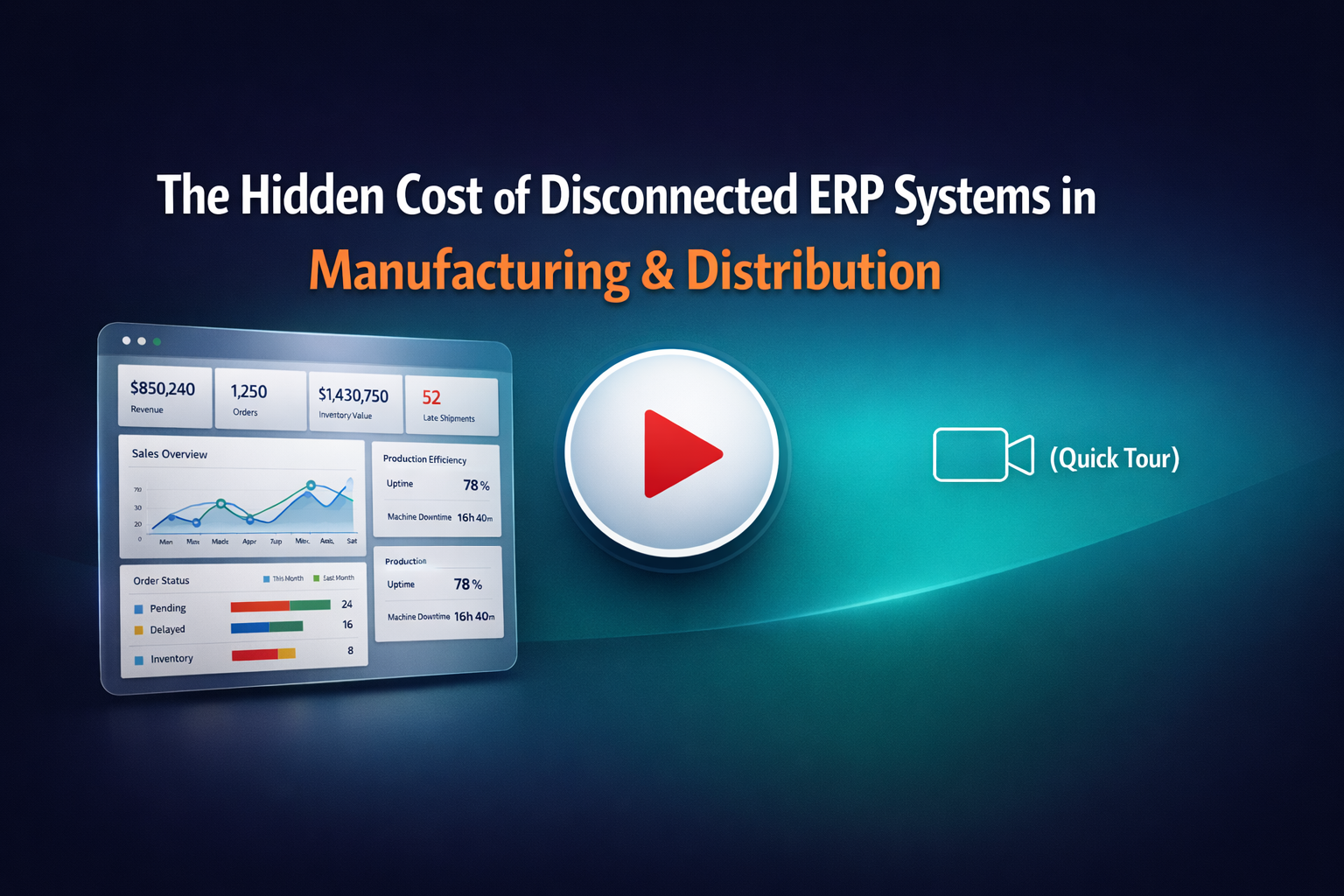Table of Content
- Why businesses choose CRM consolidation to improve sales efficiency
- Signs your CRM environment needs integration and data consolidation
- Symptoms of CRM overload and disconnected data
- How to consolidate multiple CRM tools without disrupting your workflow
- Understanding data consolidation and its impact on CRM performance
- The long-term benefits of an integrated CRM system for sales and growth
- FAQ
Why businesses choose CRM consolidation to improve sales efficiency
When sales teams use numerous disconnected technologies to maintain client data, monitor prospects, and report performance, efficiency suffers. Every additional platform requires more logins, data entry, and time spent trying to connect the dots rather than selling. That is why many growing firms have turned to CRM consolidation (combining customer data and sales processes into a single, integrated system).
Sales representatives can run reports and find the most recent client changes without switching across platforms when they have a unified CRM. A coherent image of the customer journey can be created by marketing, support, and leadership using the same precise data. This saves time and offers teams the confidence to move more quickly, set better priorities, and close more sales.
How fragmented tools slow teams down
When every department uses its own CRM or separate tools, cracks start to appear:
- Missing data: Key customer details live in different systems, leading to incomplete or conflicting information.
- Duplicate work: Teams often end up entering the same data multiple times or manually reconciling mismatched records.
- Slower decision-making: Without a single source of truth, managers spend more time consolidating reports instead of guiding strategy.
- Lost opportunities: Sales reps may miss follow-ups or overlook qualified leads simply because the information isn’t in front of them.
Signs your CRM environment needs integration and data consolidation

Not sure if it’s time to rethink your CRM setup? Many businesses don’t realize how much their fragmented systems are holding them back until inefficiencies pile up. Here are some common warning signs that your CRM environment needs CRM system integration and data consolidation:
- Your team spends more time updating tools than selling. If reps are constantly entering the same customer information into multiple platforms, that’s valuable selling time lost.
- Data feels inconsistent or unreliable. When customer details don’t match across systems or worse, get lost in the shuffle, trust in the data drops, and so does productivity.
- Reports are difficult to pull together. If managers need to export spreadsheets from different platforms just to see basic sales performance, it’s a clear signal that the system isn’t working for you.
- Customers fall through the cracks. Missed follow-ups or duplicated outreach often happen when customer information is scattered instead of centralized.
- Adoption is low. If your team avoids using certain tools because they feel clunky or disconnected, it’s time to simplify.
When these signs show up, it’s a red flag that your CRM ecosystem has become more of a burden than a benefit. Data storage consolidation and tools integration help you create a single, reliable hub that empowers sales teams instead of slowing them down.
Symptoms of CRM overload and disconnected data

Growing your CRM system without a clear plan can frequently result in "tool overload." Your sales efforts are powered by a number of apps, each of which handles certain parts of the process, rather than a single central system. The outcome? Clarity is lacking in favor of uncertainty. Here are a few signs to look out for:
- There are too many platforms to access. In order to get ready for a single customer contact, representatives waste time switching between tools.
- Manual workarounds. Unstructured data is evident if your team uses spreadsheets or copy-and-paste to link data from one tool to another.
- Team frustration. Sales, marketing, and support all complain that they can’t see the “full picture” of a customer.
- Slow onboarding for new hires. Since a new sales representative must learn several platforms rather than a single, efficient one, training takes longer.
- Rising subscription fees. When only a portion of the capabilities are being utilized, the cost of purchasing overlapping tools can mount up rapidly.
At first, these symptoms might not seem like much, but they eventually reduce productivity. Teams can return to what really matters: fostering connections and increasing sales by addressing CRM overload through integration and CRM consolidation, which helps restore a clear, cohesive image of your customers.
How to consolidate multiple CRM tools without disrupting your workflow
It's not necessary for combining your CRM solutions to feel daunting or dangerous. The important thing is to treat it as a methodical procedure rather than a quick switch. Consolidation, when done correctly, enhances rather than disrupts your workflow, allowing your team to continue working while the change takes place in the background.
Planning, team communication, and step-by-step migration
- Start with a clear plan. Define why you’re consolidating and what “success” looks like. Fewer tools, cleaner data, faster reporting, or all of the above. Map out your current systems, the data they hold, and where it should live in the new setup.
- Engage your team early. Sales, marketing, and support each interact with the CRM differently. Involve them in the planning stage so you understand their must-haves and pain points. Early buy-in helps reduce resistance later.
- Choose the right timing. Avoid peak sales seasons or campaign launches. Pick a transition window that minimizes the risk of disruptions.
- Migrate step by step. Instead of moving everything at once, start with a pilot group or a smaller data set. This phased approach lets you catch issues early and build confidence.
- Clean your data during migration. Consolidation is the perfect chance to remove duplicates, update outdated records, and standardize formats so your new CRM environment starts fresh.
- Provide training and support. A smooth rollout depends on people, not just technology. Offer clear onboarding, quick guides, and ongoing support so your team feels confident using the new system from day one.
SyncMatters simplifies consolidation by integrating with over 55 CRMs and offering automation features. We ensure that your workflows remain intact as your data flows smoothly, from safe data migration to integrating your CRM with marketing, sales, and support systems. As a result, there will be less downtime, fewer manual corrections, and a quicker transition to a completely integrated CRM environment.
Understanding data consolidation and its impact on CRM performance
Data is the foundation of CRM effectiveness. It gets increasingly difficult to track performance, estimate revenue, and trust insights when there is a greater amount of unstructured data. But first, let's define data consolidation. By combining all customer-related data, data consolidation solves this problem. When done correctly, it changes how your company makes decisions as well as how your CRM functions.
What is data consolidation and how it improves forecasting
The process of combining disparate customer records from several databases, spreadsheets, or technologies into a single, cohesive dataset within your CRM is known as data consolidation. Consolidation generates a single, accurate, and current profile for each account, lead, or contact rather than having several copies of the same customer existing in various systems.
Forecasting is directly impacted by this clarity:
- Better visibility into the sales pipeline: With all deals and opportunities tracked in one place, managers can see the true size and health of the pipeline without guessing the numbers.
- Accurate trend analysis: Historical data is consistent and complete, allowing teams to spot real patterns in customer behavior and sales cycles.
- Stronger revenue predictions: Clean, centralized data means forecasting models are based on facts, not guesswork, leading to more reliable revenue projections.
- Informed decision-making: Leaders can adjust strategies quickly because they trust the CRM data and the insights it generates.
The long-term benefits of an integrated CRM system for sales and growth

An integrated CRM system is a long-term investment in the expansion of your company, not a temporary solution for disparate technologies. You can build a foundation that grows with you, adjusts to changes in the market, and keeps providing value year after year by combining systems and bringing teams together.
Saving time, scaling faster, and enabling better decisions
- Saving time: When sales reps don’t have to hunt for customer details across multiple tools, they can focus on building relationships and closing deals. Automated data flows also eliminate repetitive manual tasks, freeing up hours each week.
- Scaling faster: As your business grows, an integrated CRM can grow with you. Instead of adding yet another tool for each new process, you expand within a unified system that already connects sales, marketing, and support. This makes onboarding new team members smoother and scaling operations far less painful.
- Enabling better decisions: With clean, consolidated data, leaders see the full customer journey and sales performance. This means forecasts are more accurate, strategies are more targeted, and decisions are made with confidence.
These advantages accumulate over time. An integrated CRM system facilitates cooperation, lowers friction, and increases predictability in growth, all of which help organizations gain momentum. It changes CRM's function from only serving as a "system of record" to actually boosting sales and fostering client loyalty.
FAQ
What is CRM consolidation and how does it work?
Consolidating several CRM platforms or technologies into a single, cohesive system is known as CRM consolidation. It functions by establishing a single source of truth for all customer data, integrating workflows, and migrating data.
When should a company consolidate CRM systems?
When data appears disorganized, reporting becomes challenging, sales teams perform redundant tasks, or clients are falling between the cracks, a business should think about consolidating.
Is CRM integration the same as data consolidation?
Not exactly. While consolidated data combines duplicate or fragmented entries into a single, correct dataset inside your CRM, CRM system integration links several systems so they can share information.
What’s the risk of not consolidating your CRM tools?
Wasted time, increased expenses, inconsistent client experiences, and inaccurate data that affects sales forecasting are among these risks. Systems can be consolidated to remove missing information and guarantee that all client records are accurate and comprehensive.
Can small businesses benefit from CRM consolidation?
Indeed. Small teams can save time, reduce expenses, and grow without the hassle of managing several disparate platforms by using a unified CRM, which is the source of truth.




